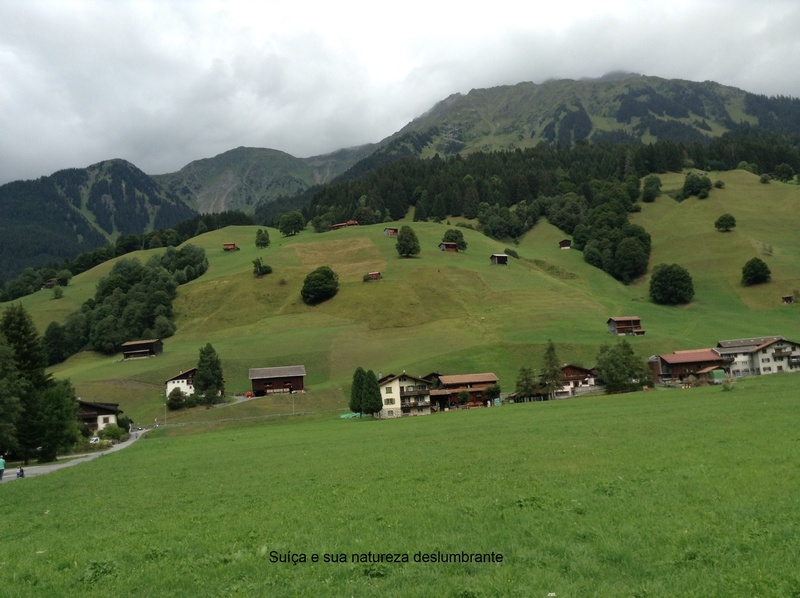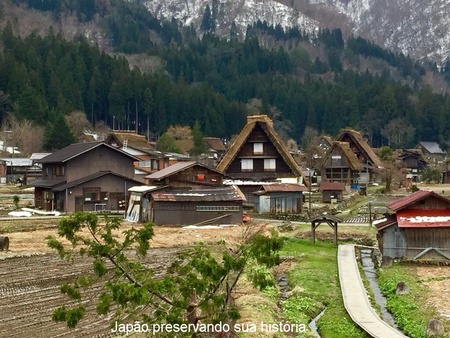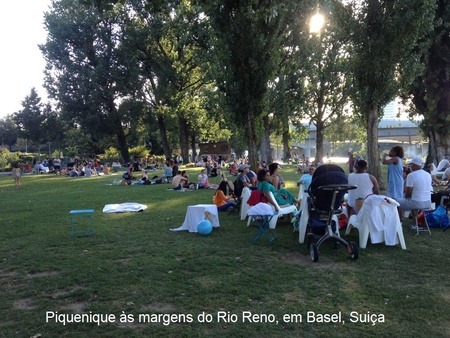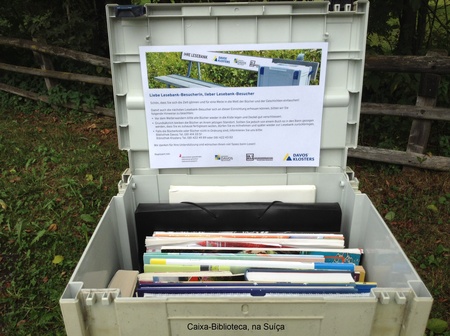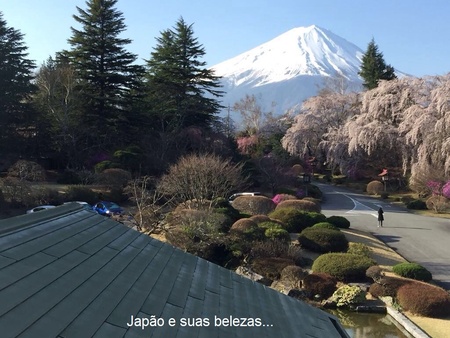The poet Mário Quintana once said: “ traveling is changing the clothes of the soul! “ Traveling is great, it’s good for the soul and the heart! When we travel, we broaden our horizons, we expand our borders. We return in a different way, rejuvenated, with a new state of mind and a different way of thinking and acting. You even become a better person, I dare say.
Imagine taking a plane, crossing the ocean and, after a few hours, landing in another country and encountering a different time zone, languages, people, food and smells, it's strange and even scary, but fascinating at the same time. You begin to live another reality, in another time and space, everything is enchanted by the discoveries of each moment. How good it is to know the unknown, discover a new world, cross bridges, borders, feel like a foreigner.
From imagination to reality, all this and much more was possible to feel a few days ago, when traveling to Europe, more precisely to Switzerland and Portugal, thanks to the magnanimity of a daughter who lives there (Basel/Switzerland), who allowed us to see the country again , with the right to extend the tour to Lisbon and Algarve. We had already been to the Swiss country a few years ago, but this time, with our daughter and son-in-law serving as guides, we, my wife and I, had the opportunity to delve deeper into the Swiss Cantons, getting to know a little more about some charming little towns at the foot of of the Alpine Range. Amidst the stunning postcard landscape, with the mountains and green fields as a backdrop, we walked along streets that seemed to transport us to the past, in the Middle Ages, in front of the beauty of the historic buildings, mixed with the aroma that came out of the charming restaurants. and tea houses. During this journey, it became clear why this small nation has become a reference on the world stage as a model of organization, quality of life and economic-social development. And, without forgetting its famous chocolates, pocket knives, cheeses and a powerful banking system.
Given so many good and positive things that we felt in Switzerland, it was natural for a synergy to emerge with Japan, a country that we also had the pleasure of visiting recently, in 2017 and, from whose visit, we returned more enthusiastic and admirers of its culture and development. .
Japan and Switzerland are two countries with many differences but also with many similarities and points in common, despite the geographical distance that separates them and their very different ethnicities. The country of the Rising Sun has around 370,000 km 2 and 130 million inhabitants. Switzerland, on the other hand, only has 41,000 km 2 , where a population of just over 8 million people, smaller than the city of São Paulo, lives in a dignified way, with an enviable quality of life that allows the country to have one of the best indexes of HDI.
They have in common territories made up of extensive mountainous areas that, on the one hand, allow for stunning scenery, which stimulates tourism, on the other hand, restrict their use for agriculture and other productive activities. Likewise, nature did not provide them with natural riches, such as minerals, oil and gas, so valued in today's world, which boost the economy of any nation that holds them.
The wealth of Japan and Switzerland lies in their people. Educated, disciplined and determined, they elevated their countries to such prominence in the concert of nations, making them admired for their economic and social stability, high technology and quality of life.
Some of the similarities we highlight: Punctuality for appointments, like the quality and efficiency of their famous watches, the Swiss take very seriously, trying to arrive on time for meetings. But, unlike the Japanese, who worry about 10 to 15 minutes in advance, the Swiss try to arrive exactly at the scheduled time. If someone says they will meet you at 2:00 pm, they arrive at 2:00 pm and not at 1:50 pm or 2:10 pm. “ I value your time and, consequently, I value you”, says the Swiss, naturally.
The ability to live punctually is part of the Japanese and Swiss routine and this is reflected in everything, from daily appointments and even public transport. The demand and expectations in this regard are so great that the Swiss were stressed when they learned of a survey showing that only 87.5% of trains arrived within the 3-minute tolerance limit, not reaching the target of 89%. In Japan, bullet trains, the famous “shinkansen” make Swiss railways seem slow, when it is known that the average annual delay on Japanese railways is only 36 seconds.
The sense of responsibility and the collective spirit are other qualities that are part of the way of being of the citizens of both countries. Cleanliness is always present everywhere, from the sidewalk of your home to roads and public spaces. In supermarkets, shopping centers and stadiums, nothing is thrown on the ground; bathrooms are used with care, as if it were at home; gardens, plants and flowers in parks are respected, appreciated with the eyes and not with the hands. I witnessed, both in Switzerland and Japan, on weekends, groups of people getting together happily, spending leisure time on the banks of the rivers, always clean, that run through the city, in true democratic picnics, in a demonstration of a free and organized society. There were children running, young people singing, women sunbathing, elderly people napping and people of multiple nationalities preparing their barbecue, drinking their beer or wine, all within absolute order, respect and, above all, cleanliness.
Traffic regulations are strictly observed in both countries, with preference always given to pedestrians and, even in Tokyo, with its hellish traffic, there is respectful coexistence between drivers and pedestrians. In Switzerland, this sense of public spirit and honesty can be seen in the use of transport, such as trams and buses. There are no ticket collectors or turnstiles in the vehicles. The citizen buys the ticket at the electronic terminals at the stopping points and keeps it, which is only required, eventually, by an itinerant inspector. In the simplest newspaper and magazine stands, located on the outskirts, newspapers are displayed next to the newsstand, on the outside. The citizen takes the newspaper and leaves the corresponding payment in the box next to it. As we saw above, everything within absolute trust! The same attitude can be seen in Japan. An admirable fact for us Brazilians!
Another striking example of this collective spirit can be seen in small towns like Davos and Kloster. There are “library boxes”, small metal boxes, approximately 0.60x0.40, with lids and waterproof, suspended at a height of 0. 50, containing books and magazines, provided by the community and available to the population, free of charge. Those who wish can also donate other books and place them in the box. A commendable idea that portrays the high degree of civic awareness and solidarity of these people.
In Japan, in turn, the way in which you are received in commercial establishments, whether in a hotel or in a commercial store, stands out to any visitor. Since the sonorous “Irashaimasse (Welcome)”, to the courteous and gentle manner of service, you are being treated within the concept of “omotenashi”, something like “delighting the customer”, present in any store you visit, from the simplest to the sophisticated shopping centers. Even when paying and receiving, everything is done in a clear and transparent manner, with the employee displaying and counting each banknote and coin, so that the customer does not raise any doubts. When leaving, the customer is surprised by the employees bowing their bodies, as a sign of gratitude for the purchase, a very kind gesture. Or, when the Store Assistant accompanies you to the elevator door and only then hands you the merchandise, along with the bow mentioned above, thanking you for the purchase. Certainly, foreigners who see the scene for the first time are surprised and delighted. The art of serving customers well in Japan is taken very seriously!
Integrity and honesty is another thing that attracts the attention of visitors to Japan. If a visitor is unfortunate enough to lose or forget an object in a public space, even if it is their wallet, there is no need to despair, because, almost certainly, You will find it in the same place where it was left or lost and, in the worst case, you will locate it at the nearest police station. It may seem like something from another world, but for the Japanese, this is a normal attitude, within the principles that are part of Japanese culture. I remember that during our visit to Japan, on a trip we were taking by train, one of my colleagues lost her passport in a convenience store and realized it was lost when we were continuing our journey, on another train. At the first stop, our guide managed to speak, by phone, with the manager of the store where we had state and learned that the passport had been found and that they would forward it to the final station we were heading to, which was Tokyo. We were amazed at such efficiency and civility!
The enviable quality of life of the Japanese and Swiss forces us, even if involuntarily, to think about our Brazil. My intention was to conclude the text trying to avoid the indefectible comparison with our beloved country, but the intense and striking contrasts and the dramatic reality that our country is going through, force me to raise a crucial question: why should such a large country, Fertile and rich in natural resources, how can Brazil, safe even from cataclysms, be included in the list of great world powers, like Japan and Switzerland itself?
Everything indicates that the main reason is the lack of attitude – an attitude that should be an intrinsic part of every citizen, forged over time by education, culture, ethics, the level of public and civic awareness of the people, indispensable principles for the existence of a fairer, richer and more developed society.
© 2018 Katsuo Higuchi


